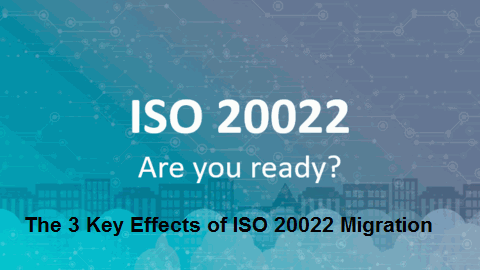In a recent press release published by The Paypers, an independent source of news and information involving international updates on eCommerce and financial advancements, ISO 20022 was featured and dubbed as the face of payment messaging in the years to come.
In a world where the demand for better security and convenience in fulfilling monetary transactions and exchanging sensitive data among financial institutions and end-users is growing rampant, the increase in companies opting for ISO 20022 migration is no longer surprising.

Market trends, client expectations, and security demands are in a constant state of change. It would be foolish for a financial institution not to look into these developments, primarily if it influences all types of transactions and payments at an international scale.
The conversion towards ISO 20022 for enhancing payment systems and security measures among financial companies is not just a one-time “phase.”
At the same time, it should not be classified under the dozens of software developed to address a singular aspect of managing business-to-business and business-to-client transactions. ISO 20022 is more than that. Think of it as a sort of ‘lifestyle change’ for payment processes and entities that have been continually putting client safety at risk. It is a relevant change that will change the trajectory of how future businesses handle financially-related systems and procedures.
Table of Contents
A New Era
Indeed, the world is slowly entering a new era, where the international community is keener at seeking better, more reliable alternatives to ensuring financial protection and client confidentiality. The transition to system advancements similar to ISO 20022 migration is so fast-paced that even the old, tried-and-tested methods of maintaining payment protection may no longer be as effective.
So far, there have been more positive than adverse reactions to the inclusion of ISO 20022 in banks and other establishments specializing in payment processing.
-
Reinforced protection against fraud and financial data breach
ISO 20022 expands available and existing information channels in payment systems. The expansion increases the scope of detecting any suspicious and fraudulent attempts to foil payment processes and transactions. As a result, banks and financial institutions can assure clients with better verification processes, a more seamless exchange of data, and tighter security measures against cybercrimes involving their sensitive data.
2. Enhanced competency and reliability
The last thing that financial companies should aspire to do is to ignore all globally recognized advancement in payment processing and leave customers hanging with outdated forms of security for their finances. ISO 20022 migration may take quite some time before its full integration into the existing systems and processes of a corporation. Still, it will guarantee better protection and efficiency in the long run. After all, who would want to entrust their monetary transactions with a company that still uses obsolete and erratic software and storage systems?
3. Well-coordinated international payment systems
As mentioned, the migration towards IS0 20022 is a significant transition that financial institutions are adapting at a global level. Due to the breadth of its influence, ISO 20022 migration is contributing to the harmonisation of payment systems and transactions across businesses, end-users, and financial corporations across the globe. Imagine infrastructures adhering to a universally recognised and practised set of guidelines for handling sensitive data, processing payments, and securing various transactions daily. Not only will it quicken operations, but it will also pave the way for unified action against future efforts to infringe data security.
The future of payment processes and systems is promising, thanks to useful innovations like the ISO 20022. There will also be more technological advancement in the financial industry, and the world can only hope that all these upcoming inventions will work following the positive changes set by the International Organization for Standardization (ISO).


